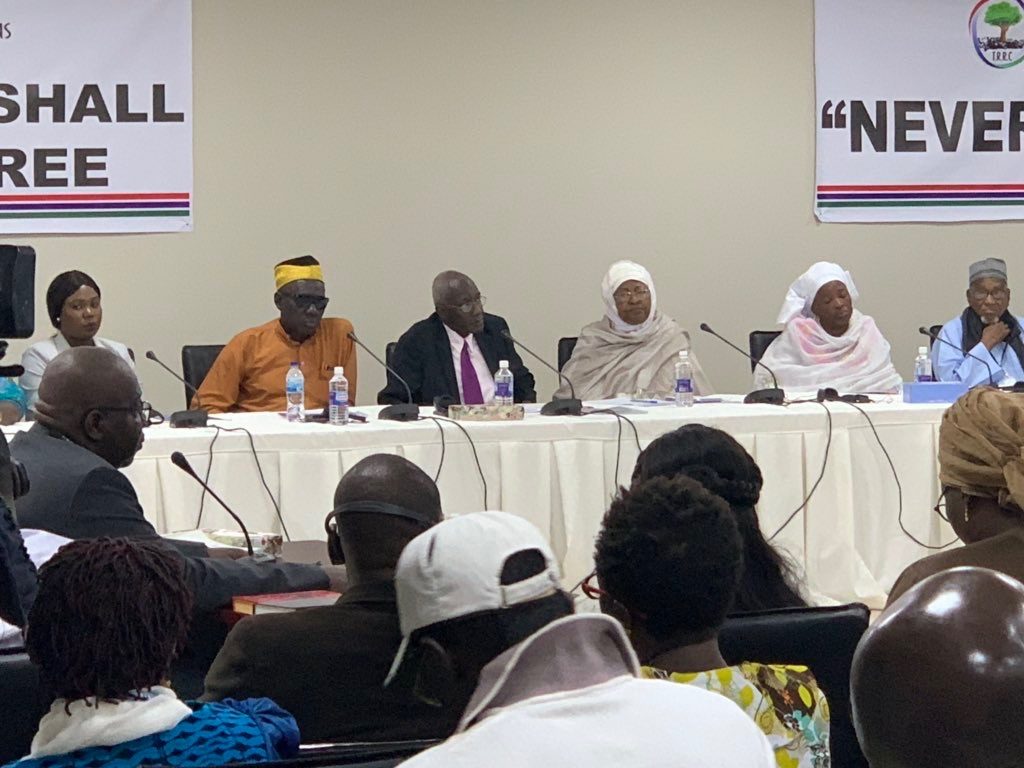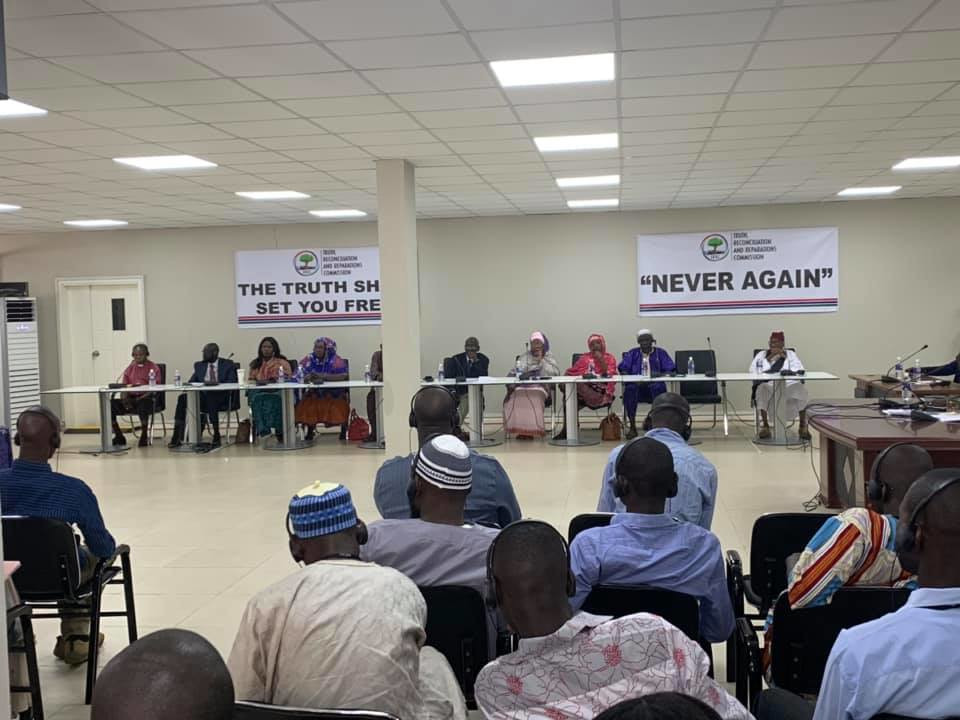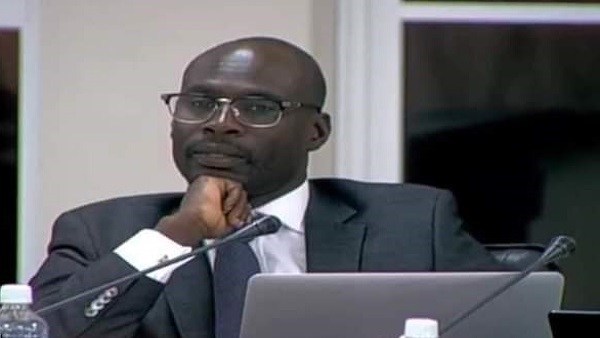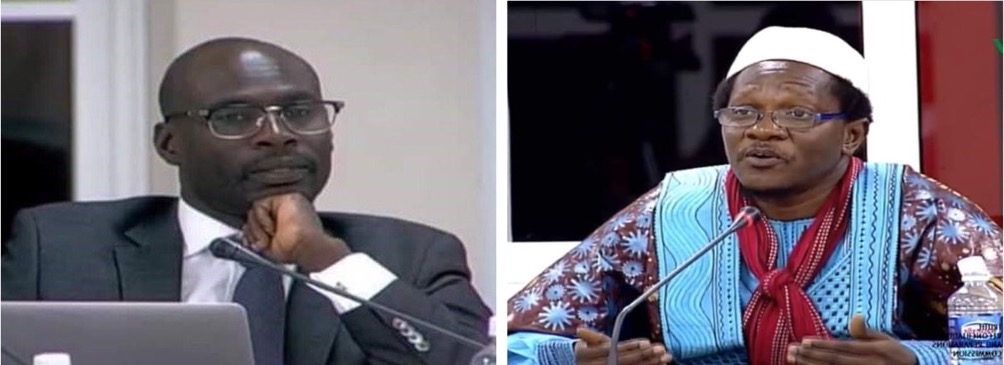
Oh Long Read
The Gambia urgently needs healing and reconciliation in diverse areas of our national life. From independence in 1965 till date, we have been through various experiences that have created pain and suffering.
As more and more first-generation leaders die off, there is urgency in getting the narratives of these leaders so that we can learn.
The Gambia government and The Truth, Reconciliation and Reparation Commission (TRRC) report and its implementation must be committed to searching for justice, national healing, reconciliation, and reparation to torture survivors and families of victims based on keeping memories alive and interrogating the report for better understanding.
In so doing, we must seek answers to critical questions. What should we remember? How should we remember what we may ultimately agree upon should be remembered?
Do we even need to remember unpleasant experiences, mainly because they may tend to bring up unpleasant memories and start a new round of crisis?
In short, how do we respond to unpleasant memories? We should never forget that memory matters, justice, and forgiveness matter in healing the nation in seeking answers to these questions.
With the demise of Nelson Mandela, keeping the memory alive was fundamental to ensuring that the mistakes and the misdeeds of the past were not repeated.
These were the words of Dennis Goldberg, one of those tried together with Madiba in the Rivonia Trials leading to his incarceration for 27 years.
Mr. Golberg opined that at the end of apartheid, they were confronted with two challenges.
First, the documentation of the atrocities committed by the apartheid regime had been deliberately incinerated by the administration in steel furnaces, as shredding them would take too much time.
Secondly, between the release of Mandela in 1990 and the takeover of power by the ANC in 1994, the security forces of the apartheid regime had killed 10,000 black people with the hope of creating a crisis and disrupting the transition.
While Mandela and the ANC leadership reassured the white community, their brethren were being massacred. In this context, the Truth and Reconciliation Commission was established to keep the memory alive to heal, reconcile and unite a divided and polarised nation.
He added that not all the Truth was told, and reconciliation was incomplete. Still, the process was necessary for a successful transition of justice and forgiveness.
In the Gambia, The Truth, Reconciliation and Reparations Commission (TRRC) has played an instrumental role in forwarding and bringing visibility of human rights violations and excesses and the horrors of the evil and vicious dictatorship of former president Yahya Jammeh’s twenty-two year rule.
The Gambia and indeed the world heard from hundreds of witnesses. Most of them were victims of atrocities meted out to innocent civilians by the State, its agents, or individuals sponsored by both.
However, the witnesses appearing before the Commission also included self-confessed perpetrators. The witness testimonies heard during days of public hearings brought pain and bewilderment to the population.
They could not believe that the atrocities they heard from witnesses could occur in their country. A land of peaceful coexistence! A society imbued with a tolerance of the highest order!

They could not believe that innocent and ordinary citizens and other nationals found in the territorial jurisdiction of The Gambia, many murdered in cold blood, would-be victims of the atrocities narrated.
The commission of these atrocities by Jammeh and his cohorts achieved the desired effect of instilling fear among the Gambian population. It also gave them time and space to pillage the country’s resources.
As a result, the Gambia became a collective victim of Yahya Jammeh’s phenomenon. Witnesses have testified before the TRRC that structures that underpin good governance, e.g., respect for the rule of law and independence of the judiciary, were virtually non-existent during the twenty-two-year Jammeh rule.
And such concerns, the TRRC both as agents of truthtelling, reconciliation, reparation to torture victims/ survivors, unity, peace, and change and in service of the pillar of non-repetition slogan under the TRRC’s ‘Never Again campaign.’
Unfortunately, however, the truth-seeking and reconciliation mandate of the TRRC has led to various challenges such as people’s lack of public trust and confidence in the commission and trusting the public perception suspicions of the Commission, and even hostilities, which should have been managed but failed to address.
The truth commission was mired in controversy with calls for the lead counsel’s professional conduct despite his achievements. His professional responsibility, as well as his professional integrity, had raised eyebrows. He was linked to partisan politics that the commission was meant to investigate and address.
Due to the politicisation of the commission, the lead counsel was asked to resign or face termination. While the commission was asked to avoid politicisation or rectify the structural problems caused to the commission facing an unprecedented legitimacy crisis. The commission still face this legitimacy today as the government seeks to implement its report.
At the same time, the public hearings attracted massive media attention. As lead counsel and head of the legal team at the TRRC, Mr. Essa Mbye Faal had demonstrated extraordinary courage in unearthing the twenty-two years of horrific human rights violations of former president Yahya Jammeh and his regime and had applied his skills as a top lawyer to investigate cases brought to the Commission’s attention.
If Essa Mbye Faal had any flaw, it was his craving for publicity and his political ambition. Rather than carry out his task quietly and professionally, he made profound statements on television and pages of newspapers about his intention to sanitise the Gambian body-politic.

He thoroughly enjoyed the media exposure accompanying each high-profile witness at the commission public hearings. He sometimes found it difficult to draw a line between his role as a lead counsel and the growing public perception of him as an appendage of the opposition.
His conspicuous role played into the hands of his critics, who maintained that instead of investigating human rights abuses of Yahya Jammeh’s twenty years despotism, he and the TRRC had become forces that some opposition politicians and activists deployed against its opponents.
If, as noted above, Essa Faal and the TRRC have this innate urge to be noticed, it should not be difficult to figure out why the lead counsel, before submitting the report, publicly declared his presidential ambition to contest the December 4, 2021, presidential election. I may, of course, be wrong. I leave others to reach their conclusions.
Defining truth problematically, in its final report, does the Gambia’s Truth, Reconciliation and Reparation Commission (TRRC) presents a detailed and thorough discussion of how it is regarded truth or whether it saw different types of truths.
Scholars and other truth commissions have noted that Truth is a complex and contested concept. For example, South Africa’s Truth Commission identified four types of truth present in testimony before it: factual or forensic, personal and narrative, social and healing, and restorative.
In Kenya’s Truth and Justice Commission, in their dissent to the truth commission, three commissioners suggest that the entire report be interpreted as presenting an accurate historical record of only what was presented to the commission in testimony.
They write that they were willing to add qualifications to highly contentious sections of the report stating that the information is given “was provided by a witness who testified under oath to the commission, to thus dispelling the possibility that someone might think that by repeating what someone else had said the commission was concluding that the assertions were true.
This is, of course, a truism that applies to the entire report. One of the tasks of the Gambia’s TRRC was to provide a narrative of historical injustices that included the perspectives of victims, perpetrators, and others.
Does this mean that evidence in the commission report from testimony should be regarded as personal or narrative truth and not factual? Inconsistent language in the report makes it TRRC challenging to determine this point.
The TRRC’s objective was to establish an accurate, complete, and historical record of human rights and economic rights violations and a complete picture of their causes, nature, and extent during its mandate period.
Therefore, uncertainty about which statements and interpretations the commission is verifying and which it is uncritically passing along gravely compromises the power of its assessments.
Witnesses have been accused of cooperating but telling lies. In contrast, others were truth-telling the truth but not cooperating instead became hostile witnesses.

Nevertheless, some of these answers lie in the very composition of the commission as a model, which, like the National Human Rights Commission (NHRC), sees its members come from all ethnic groups and backgrounds.
Moreover, the visibility of the TRRC and the NHRC should have promoted civic education and civic responsibility to help raise people’s awareness about human rights, in line with Gambia’s commitment to addressing violations.
Former strongman Yahya Jammeh is gone in exile farming in Equatorial Guinea; the killings by state agents have stopped; the State no longer sanctions torture; Junglers have dispersed, some in foreign lands while others stayed to confess their misdeeds.
The folly of ruling The Gambia for a billion years abruptly and ignominiously ended in twenty-two years. The crocodiles in Foni Kanilai lay submerged in a dirty pond. Nevertheless, at the same time, the peacocks in Jammeh’s palatial grounds cry out ceaselessly and purportedly for their departed master.
To be continued.
By Alagi Yorro Jallow











Recent Comments